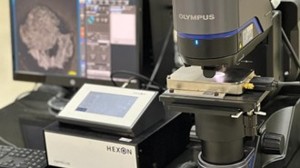Application of Hexon Hot Stage Microscopy
pharma, polymer, liquid crystal, food technology, forensic, petrochemicals, cosmetics and other

Hexon Hot stage microscopy delivers dynamic thermal analysis combined with direct visualization, making it a versatile tool with critical applications in pharmaceuticals, polymers, liquid crystals, food technology, forensics, petrochemicals, cosmetics, and beyond.
Pharmaceuticals
Hexon Hot stage microscopy is widely used for studying polymorphism, crystallization, desolvation, phase transitions, melting points, glass transition, solid-state reactions, and morphology of active pharmaceutical ingredients (APIs) and excipients. It supports differential scanning calorimetry (DSC), thermo-gravimetric analysis (TGA), and can detect fine changes missed by these techniques. It is invaluable for screening cocrystals, excipients, and polymers for solid dispersions, quality control, and process optimization.
Polymer Analysis
Hexon HSM allows visualization of polymer melting, crystallization, solid-solid phase transitions, and compatibility blends under thermal stress. The tool is critical for assessing processing conditions, thermal stability, morphology development, and defect analysis in polymer science.
Liquid Crystals
The technology is particularly useful for observing phase transitions (such as nematic to isotropic), thermal behaviours, and the alignment of liquid crystals, benefiting both material science and display technology industries.
Food Technology
Hexon Hot stage microscopy is applied in food science for visualizing fat crystallization, determining melting and freezing points, monitoring moisture migration, and analyzing thermal stability and shelf life of food products.
Forensics
In forensic sciences, HSM aids the identification of drugs, explosives, fibers, and other trace evidence by monitoring their thermal responses and microstructural changes. It helps differentiate substances in mixtures and supports integrity tests on unknown samples.
Petrochemicals
The technique finds use in petrochemical analysis for observing microstructure changes during cracking, wax crystallization, asphaltene precipitation, and other thermal events. It helps model and optimize refining and processing steps.
Cosmetics
It supports formulation analysis by enabling observation of phase changes, melting, compatibility between ingredients, and stability of creams, lotions, and powders under thermal cycling, which is crucial for shelf life and product efficacy.
Other Fields
Hot stage microscopy is further leveraged for material research (e.g., ceramics, glasses, composites), geology, and pharmaceutical manufacturing support. Its flexibility in integrating with spectroscopic techniques like FTIR and Raman expands its utility across scientific and industrial domains.
Hot stage microscopy’s combination of controlled thermal analysis and direct imaging enables reliable, reproducible results across a broad spectrum of scientific and industrial applications, providing deep insights not achievable using conventional techniques
